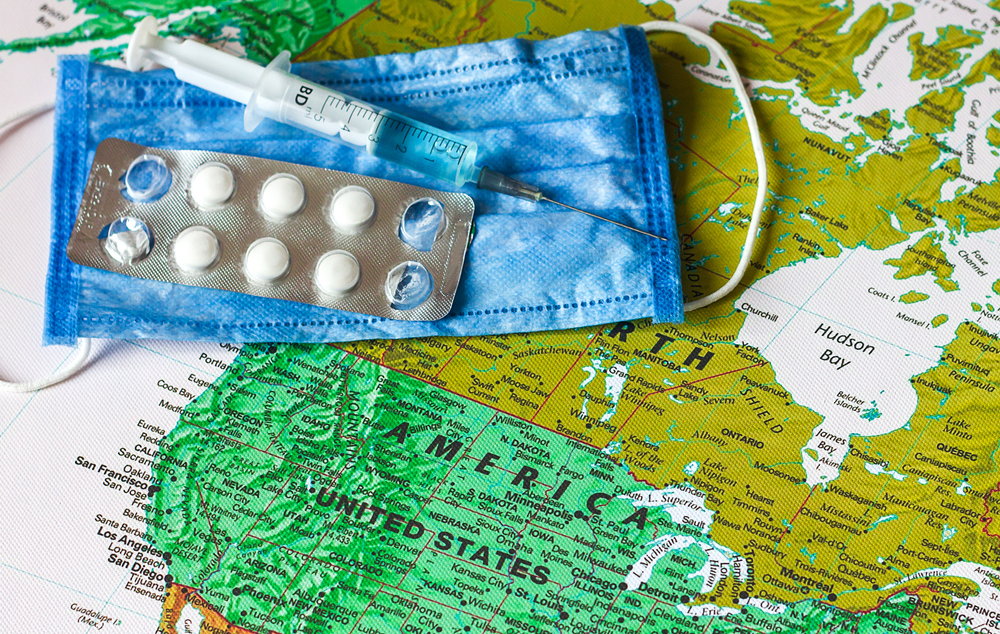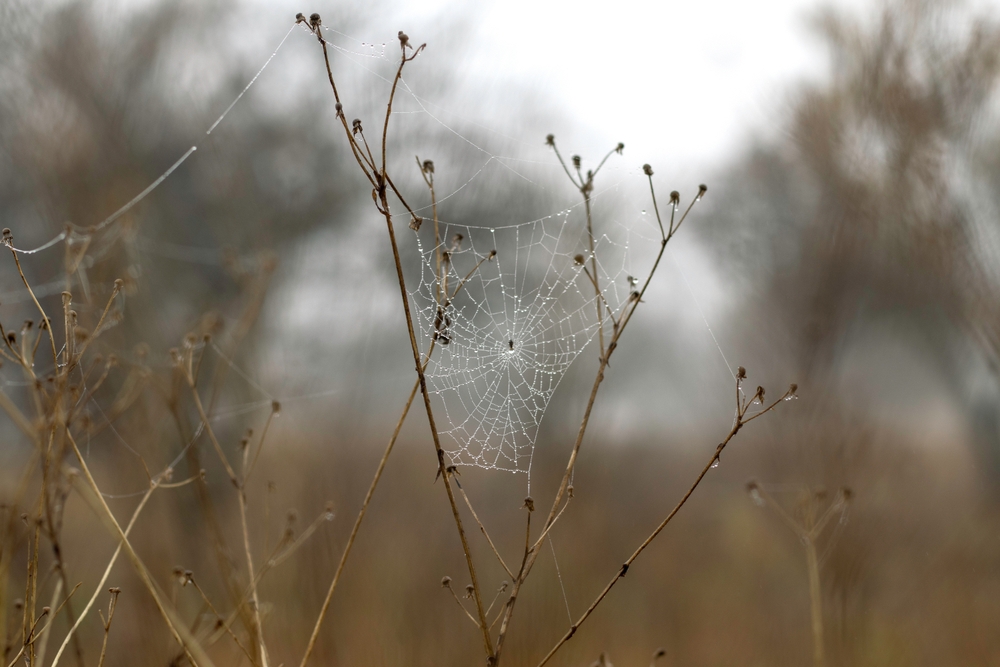This Crisis Is a Distinctly American Tragedy
Joel Salatin|August 18, 2020

Over the years I’ve come to appreciate what I can learn by going over to a neighbor’s hill and looking back at our farm.
All of us get used to our context. We sometimes need a different perspective in order to better understand what we do and what we’ve done.
In grass farming, we admonish each other to look down, not across. When you look across the field, all may look fine… but when you look straight down, you can see the bare soil between plants.
I find that by looking back at our farm from a neighbor’s vantage point, I notice things I don’t normally notice because I’m too close or too familiar with the terrain.
A Matter of Pride
Whenever I travel internationally, one of my favorite things to do is pick up English-language newspapers to see what they say about America.
Ask any foreigner what they know about American food culture, for example, and they’ll reply, “McDonald’s.”
Isn’t it tragic that a nation as big and creative – and proud – as ours is known as the “fast food nation”? (When Eric Schlosser chose that title for his runaway bestseller, he hit the nail on the head.)
Nationalistic pride naturally feeds a desire to be No. 1 at something. We love having the top gymnastics team in the Olympics, for example. Or the best basketball team.
But guess what… being No. 1 in noninfectious morbidity is no source of pride.
A friend recently related a story about attending a wedding between an American and a Zimbabwean. She asked a Zimbabwean relative, “What is the most defining thing you’ve noticed about America during your visit?”
Without hesitation, the Zimbabwean visitor responded, “Nearly every commercial is about some sort of medicine.”
We’re No. 1!
When we consider just a few of the statistics regarding COVID-19, we must admit that America is suffering the worst effects. Think about that. It’s another place where being No. 1 is no good.
Of all the countries in the world, apparently ours is the most vulnerable to this virus.
Connecting the dots between a foreigner’s quick assessment of America’s uniqueness being medicine (you could also say pharmaceuticals) and the fact that we lead the world in COVID-19 deaths yields some much-needed introspection.
If I asked you what is most distinctive about America, would you reply like this Zimbabwean visitor?
I know I wouldn’t. I’d say something about freedom or innovation or diversity – the old melting pot idea.
I daresay no American would point to pharmaceutical commercials.
That’s the value of looking back at your place from the neighbor’s. You get a perspective you’d never see on your own.
So here we Americans sit, atop the COVID-19 pyramid… and looking at us from abroad, people see pharmaceuticals.
They don’t see a healthy people struck down by a virus that seems to prefer freedom-loving innovators.
No, they see a society committed to and dependent on drugs, falling before a virus precisely because of our unhealthiness.
Paying the Price
Is it any wonder that the nation that invented DDT, genetically modified organisms, factory farming, hydrogenated vegetable oil, TV dinners, squirtable cheese, high-fructose corn syrup and Coca-Cola would be the one most devastated in the face of the coronavirus?
As I look across America’s health trajectory, I can only say that this most recent epidemic is both predictable and inevitable.
We do not have the worst numbers because we lack universal healthcare. It’s not because we’re older. It’s not because of radio waves or racism or politics or Trump or anything else people throw out there as a cause.
Our response to the virus shouts loud enough for all to hear that a nation that leads the world in disrespecting nature and assuming drugs are the answer will eventually pay the highest price in immunological dysfunction.
More Americans eat unpronounceable food than any other country. We ingest more sugar. We eat more highly processed food.
We literally give food the least thought of any culture across the globe right now.
We cannot disregard our bodies’ collective fuel this profoundly without consequence.
Oh, by the way, America also leads the world in infertility. The entire continent of Africa has not seen any decrease in sperm counts over the last few decades. It’s plummeting in the U.S.
Nothing is by accident. Vengeful fairies are not in the heavens sprinkling sickness dust on our nation.
Unless and until we as a nation realize that we are at fault… that we have drunk the Kool-Aid of toxic, pathogenic, nutrient-deficient food… that we have worshipped at the altar of cheap food… we will not get ahead of the health crisis looming over our country.
It is not a crisis of access. It is not a crisis of technique. It is not a crisis of policy.
It is a crisis of farming and food that we’ve assaulted for a very long time.
We as a nation must wake up to the fact that we cannot expect health from drugs.
A New Goal
Other nations look at us and shake their heads.
They don’t shake their heads because we don’t have universal healthcare. They don’t shake their heads because Trump is in the White House.
They shake their heads because we’re sick and don’t know it. That is indeed a tragedy… and until we recognize it and change our collective farm and food protocols, we will continue to lead the world in virus vulnerability and noninfectious morbidity.
It follows as sure as the sun rises in the morning. It’s as connected as hand in glove.
Let’s not blame “them,” “those people” or partisan divides.
Let’s look in the mirror and own our mistakes, repent, and own the solution to the problem we’ve created.
Let’s be No. 1 in immunity so we need the fewest hospitals per capita.
How about that for a goal?
Where do we go from here? Share your thoughts at mailbag@manwardpress.com.

Joel Salatin
Joel Salatin calls himself a Christian libertarian environmentalist capitalist lunatic farmer. Others who like him call him the most famous farmer in the world, the high priest of the pasture, and the most eclectic thinker from Virginia since Thomas Jefferson. Those who don’t like him call him a bioterrorist, Typhoid Mary, a charlatan, and a starvation advocate. With a room full of debate trophies from high school and college days, 12 published books, and a thriving multigenerational family farm, he draws on a lifetime of food, farming and fantasy to entertain and inspire audiences around the world.



